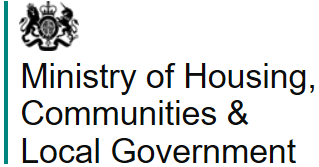Future proofing a planning system?

By Richard Anderson
The long, and for some nervously, awaited review of the planning system commenced on 6 August this year with the issue of the “Planning for the Future” White Paper. This had been preceded by some tinkering with the system in reaction to Coronavirus matters.
6 months on, questions are being asked, and further policy mooted, as to how the system can react to further effects of the virus which is knocking our high streets. Whether it is the loss of major retailers, many of which have been anchoring our towns and cities, or the necessity for large office floorspace, a medium to longer term question to be answered is what affect the planning system in future guises both our town and city centres and our residential communities.
Already, the Government has agreed that certain aspects of the proposed planning reforms require not just a relook but alterations, a key one being how in the future central Government will dictate to local authorities, the amount of housing they should seek to bring forward. Only today the Government has indicated that the distribution of new housing is likely to be aimed more to the north and less in the south, this being an adverse reaction by some to a pesky algorithm which suggested the contrary.
Not surprising is the amount of debate being undertaken not just within the planning and development sectors but local communities and Parliament itself. Yesterday the White Paper and its implications for communities was subject of a debate in Westminster Hall. Last Monday the Housing, Communities and Local Government Select Committee continued hearing evidence on “The Future of the Planning System in England” and last Wednesday “The Future of our High Streets,” was debated in the Commons.
Whilst it was expected that the long awaited White Paper could, after all the waiting for it, deal with a reform to the planning system in a comprehensive manner, what is also occurring are a series of what some perceive to be sticking plasters to fix unforeseen planning obstacles/matters. Whether that is a wholescale change to the Use Classes Order (invoked, 1 September 2020) or just 2 weeks ago (consultation, 3 December) focussed changes in relation to Permitted Development Rights, it appears that a week does not go by without a pronouncement, consultation, enactment or debate on some matter of planning. This is welcomed?
Overall, a review of the planning system was expected and is needed. What has occurred is the release of a White Paper, elements of which fly in the face of a previous “localism” mantra and which are being hurriedly amended, and a slew of alterations (and proposed alterations) to distinct aspects of the system which the Government hopes will speed the system up and make it easier for permissions to be granted.
Of course, having worked in a Government department myself, a key driver for many was to at least put to one side the mantra, the proposed changes, the drafts, etc and concentrate on the final outcome, whether that be policy or legislation and critically then practice. Should this be the case here? I do not believe so given the wholescale changes proposed to a system, which since 1947 has survived relatively well intact.
Whilst I am all for change and there are areas where this required, that should occur when it is fully thought through and costed. For the former, take the Permitted Developments Rights change to allow office conversion to residential. This has resulted in many sub-standard (little to no amenity space) homes in totally inappropriate areas (industrial parks). As a result, the advice is hastily being rewritten. For the latter there is the financial cost, for instance how will planning authorities be resourced to determine planning applications (in several new guises) more promptly? There is also the professional cost as we all assimilate the changes, apply them to practice and still aim to deliver pleasant, attractive and future-proofed residential and workplace environments. These measures could be changes and cost worth bearing, only practice and time will tell.





